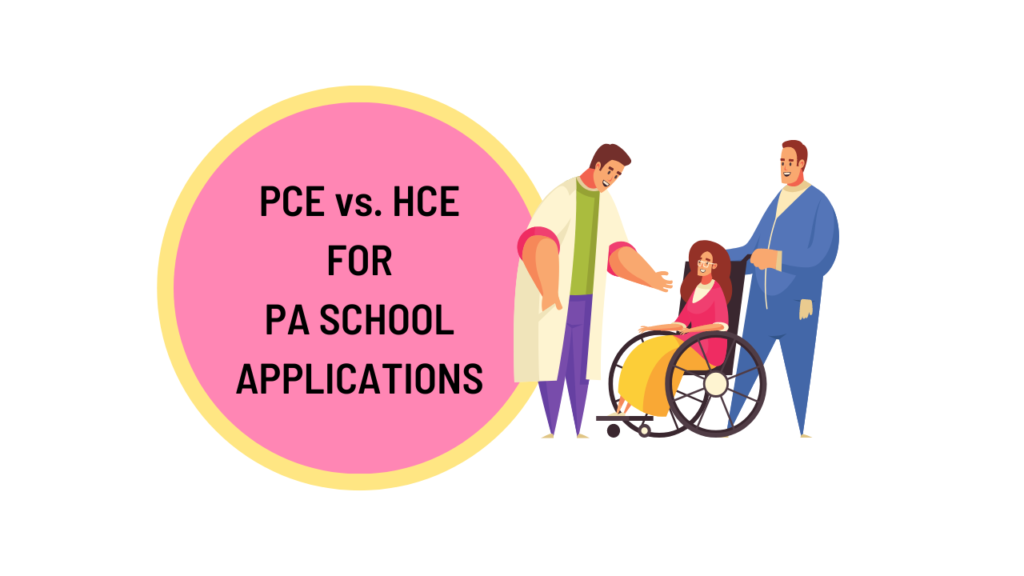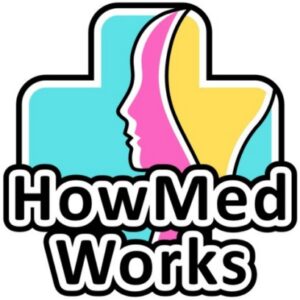
Among the various elements that go into a competitive PA school application, the significance of direct patient care experience cannot be overstated. PCE is one of the most critical aspects of a PA school application so it’s important that you understand what the expectations are and which type of experiences actually count as PCE.
In this article, we’ll talk about what exactly is PCE, the differences between PCE and HCE, and the best PCE options for pre-PA students. Later on, I’ll also share with you my past PCE experiences, as they somewhat differed from the typical PA school applicant. Let’s dive into it!
Table of Contents
What Is PCE?
Direct patient care experience, or PCE, is hands-on experience that an individual has in providing healthcare services or support to patients in a clinical setting. Working in a healthcare setting doesn’t automatically mean PCE. Rather, for an experience to count as PCE, you must have a direct role in patients’ medical care.
Some common tasks that are indicative of PCE include:
- Taking vitals
- Administering injections
- Assisting on procedures
- Prescribing medication
- Providing counseling
As you can see, all of these tasks require some form of involvement in a patient’s care plan.
Important Note: PCE requirements differ from program to program. Some PA schools require a certain number of hours to apply, while others only have PCE as a recommendation.
That being said, it’s an unspoken rule that you should have at least 1,000 hours of direct PCE and ideally 2,000 hours or more to be competitive. Moreover, you should try to have compensated PCE, since some programs only count paid positions.
What’s the Difference Between PCE and HCE?
Simply put, PCE involves direct, hands-on experience in providing patient care services in a clinical setting under the supervision of a licensed healthcare provider. Healthcare experience (HCE) is more broad and encompasses experiences that don’t necessarily involve directly working with patients.
Some common tasks that would be considered HCE are:
- Healthcare administration
- Patient care coordination
- Healthcare volunteering
- Healthcare education
- Healthcare advocacy
While PA programs often require a minimum number of hours of PCE as part of their admission requirements, HCE is usually considered supplemental.
Pro Tip: If a job or position involves both direct patient care experience (PCE) and healthcare experience (HCE) responsibilities, then it’s important to calculate the number of hours spent on each type of experience and accurately split those hours between PCE and HCE on your CASPA application.
Also, keep in mind that shadowing and research are usually categorized separately from HCE on CASPA
.
What Are the Top PCE Jobs for PA School?
Now, for the part that you’ve been waiting for, let’s talk about the 12 best PCE positions for applying to PA school.
12 Best PCE Jobs/Positions for PA School
- Emergency medical technician (EMT) or paramedic
- Medical assistant (MA) [back office]
- Certified nursing assistant (CNA) or nurse’s aide
- Patient care technician (PCT)
- Surgical technologist/technician
- Phlebotomist
- Military medic/corpsman
- Chiropractor or chiropractic assistant
- Occupational therapist (OT) or OT assistant/aide
- Physical therapist (PT) or PT assistant/aide
- Dental assistant/hygienist
- Respiratory therapist
This list is not exhaustive but should give you a good idea of what roles you should be looking at when it comes to PCE. Another important thing to consider is that some of these roles require some sort of training and/or certification, which will take some time.
PCE Jobs/Positions That Are Accepted by Some PA Schools
- Medical scribe
- Dietician or nutritionist
- Athletic trainer
- Pharmacy technician
- Healthcare volunteer
- Clinical research assistant
Pro Tip: Many PA programs will not only look at the hours you’ve spent in a PCE position but also evaluate the quality of that PCE role. Given that the PA profession is centered around a generalist training, it’s often a good idea to pick a primary care role.
Some examples include working in emergency medicine, internal medicine, family medicine, and pediatrics. (You’ll see a lot of applicants coming from an EMT or emergency medicine background.)
Lastly, let’s talk about some roles that are not considered to be PCE. Even though they might involve interaction with patients, they do not include a direct, hands-on role in a patient’s medical care.
Jobs/Positions That Do Not Count as PCE
- Medical receptionist
- Medical assistant (MA) [front office]
- Shadowing
- Caretaker
- Research assistant
My last piece of advice is to double check with programs regarding what they consider to be PCE because it really all comes down to their specific classifications. Some PA programs list what they consider to be PCE. If you can’t find a list, don’t hesitate to email the admissions office!
My PCE Hours for Applying to PA School
When you take a look at pre-PA students stats, there are a lot of applicants coming from EMT and primary care MA backgrounds. In terms of specialty, the one you’ll probably see the most is orthopedics.
I knew going into the application process that I did not want to enter primary care. However, I wanted to demonstrate that I took the time to gain an understanding of a variety of specialties and medical roles. Therefore, I worked as a medical scribe in endocrinology and cardiology, surgical assistant in hair transplant, and a medical assistant in ophthalmology.
Final Thoughts
It’s important to remember that the distinction between PCE and HCE is not always black and white, and there may be some overlap between the two categories. Additionally, different PA programs may have different interpretations of what constitutes PCE and HCE so it’s important to review each program’s requirements carefully.
Finally, don’t be discouraged if some of your experiences don’t fit neatly into either category. Every experience you have can contribute to your overall understanding of the healthcare field and make you a stronger candidate for PA school.
Conclusion
That wraps up this article! Hopefully, I was able to help you out. I know that when I started applying to PA programs, I was frantically trying to figure out which of my experiences counted as PCE and which ones counted as HCE, since there didn’t seem to be a clear consensus.
For more on applying to PA school, check out my “The 5 Best Majors to Get Accepted Into PA School ” article. In it, I not only talk about which undergrad majors are the best for PA school and why but also how you should approach your prerequisite courses and advice for non-science majors who want to pursue the PA path.
” article. In it, I not only talk about which undergrad majors are the best for PA school and why but also how you should approach your prerequisite courses and advice for non-science majors who want to pursue the PA path.
See you in my next article! As always, stay healthy and keep learning. 😀
